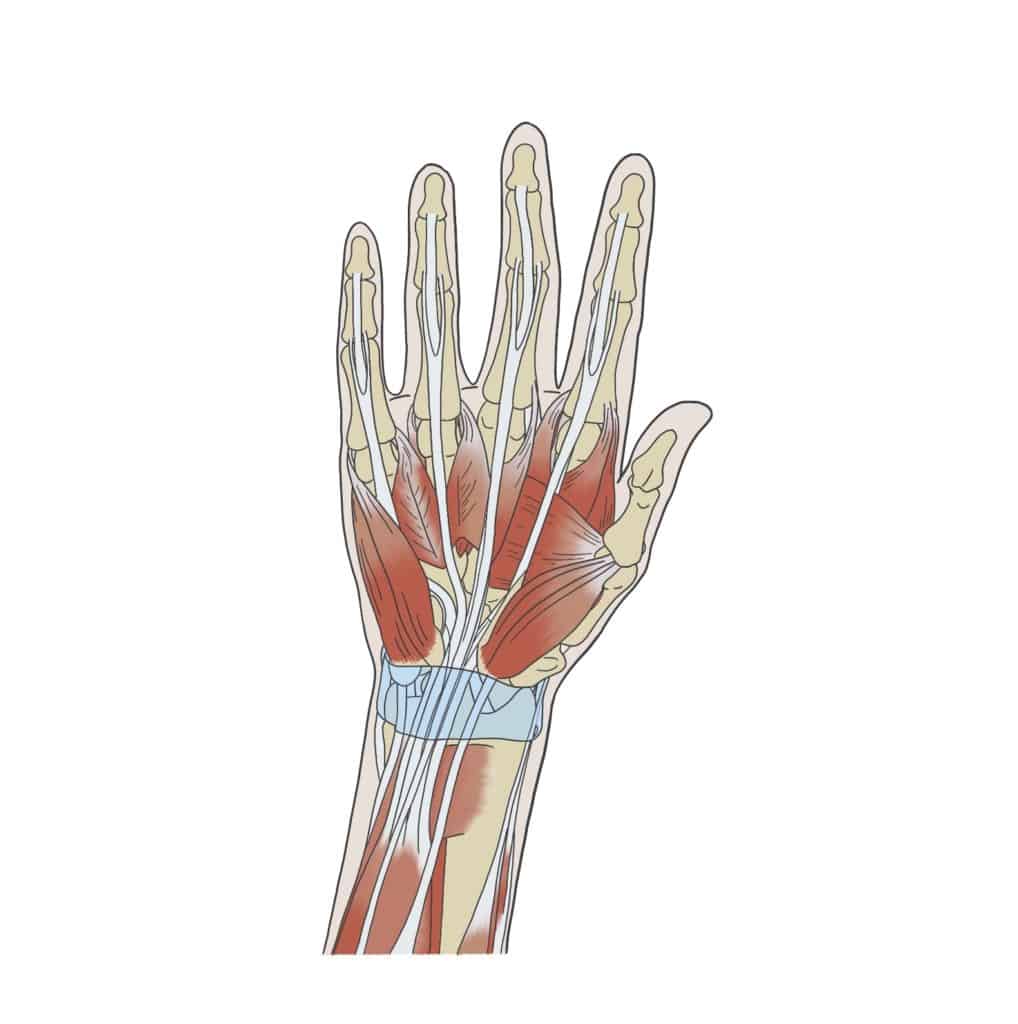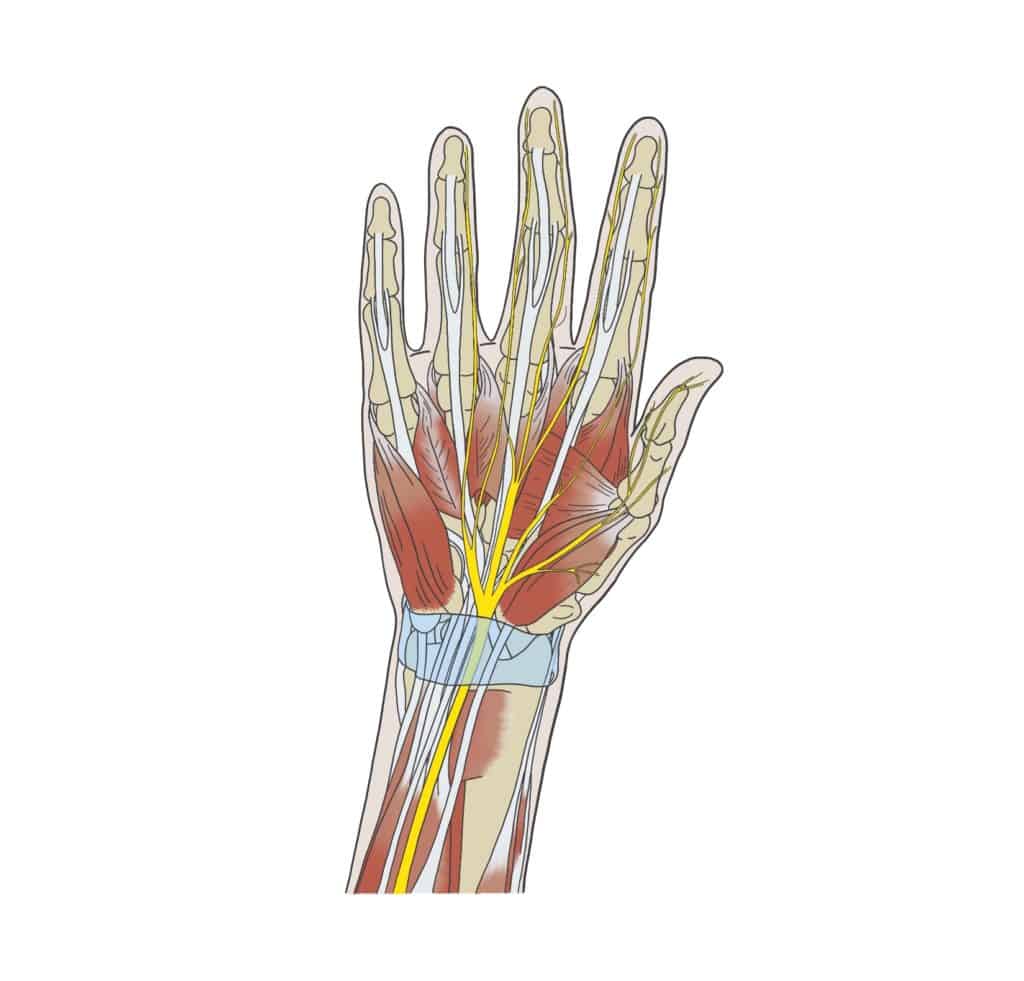Wrists & Hands
Treatments targeted at specific conditions.
Repetitive Strain Injuries
Repetitive strain injury (RSI) is unsurprisingly caused by repeated use of a particular muscle group or repeated movement of a body part. The forearms and wrists are perhaps the most common place to be affected by RSI.
Poor posture, sitting in the same position for too long, using the same muscle repeatedly without a break, and vibrating equipment such as a drill can all cause problems in the delicate muscles of our hands and forearms. At The Sussex Osteopaths we see and treat many patients with RSI. Hairdressers, dentists, mechanics, plumbers, beauticians, electricians, office workers and painter/decorators are but a few examples of occupations which can contribute to RSI injuries.
The most common symptoms of RSI are a deep aching, burning or throbbing sensation when using the affected muscle. You may get stiffness or cramping in the area as well as potential neurological symptoms such as pins and needles or weakness. Our osteopaths at The Sussex Osteopaths can diagnose and treat your RSI and offer advice to help prevent it returning.

Carpal Tunnel Syndrome
Carpal Tunnel Syndrome is relatively common and occurs when the Median nerve gets trapped in the ‘carpal tunnel’ of the wrist. The nerve compression causes pain, numbness and/or pins and needles into the hand, thumb and index and middle fingers.
Carpal Tunnel syndrome is a type of repetitive strain injury. Most commonly caused by typing/using a mouse on a computer, using tools such as a screwdriver or vibrating tools found on a building site etc. It is also common in pregnant women due to water retention and in people who have had previous trauma to the wrist, such as a fracture.
Symptoms can often come on after or during work, but also frequently at night. Many people report shaking their hands help to relieve the symptoms.
Carpal Tunnel syndrome is a condition that we can help to successfully treat at The Sussex Osteopaths. Our Osteopaths are well versed at treating CTS, offering lifestyle and ergonomic advice and prescribing exercises to help mobilise the wrist and improve your posture.

Arthritis
Osteoarthritis is a common condition that causes pain and inflammation in a joint. Often referred to as ‘wear and tear’ of the joint, it can occur at any age as a result of an injury but is most common in people over the age of 45.
The cartilage within the joint becomes thinner, meaning that there is more friction. Osteoarthritis is a normal, natural part of the ageing process and many people with it will suffer no symptoms at all! However, when osteoarthritis is symptomatic, patients complain of stiffness, reduced range of movement and pain on activity.
There is no cure for osteoarthritis; however, osteopathy can offer symptomatic relief for many patients. Osteopathy can help to increase range of movement available in the joint, decrease pain and improve function. Laser therapy has also been shown to be effective in reducing pain associated with arthritis.
We can also get a type of arthritis called rheumatoid arthritis; this can affect multiple joints in our body at the same time, but especially our hands. If our osteopaths suspect you have rheumatoid arthritis they will refer you to the GP for a blood test to confirm this. We can still treat patients once they have been diagnosed with rheumatoid arthritis and they can get a lot of symptom relief from osteopathic treatment, however it is more complex than osteoarthritis due to it’s nature and usually requires a combined treatment approach with your GP.

De Quervain’s Tenosynovitis
Osteoarthritis is a common condition that causes pain and inflammation in a joint. Often referred to as ‘wear and tear’ of the joint, it can occur at any age as a result of an injury but is most common in people over the age of 45.
We can also get a type of arthritis called rheumatoid arthritis; this can affect multiple joints in our body at the same time, but especially our hands. If our osteopaths suspect you have rheumatoid arthritis they will refer you to the GP for a blood test to confirm this. We can still treat patients once they have been diagnosed with rheumatoid arthritis and they can get a lot of symptom relief from osteopathic treatment, however it is more complex than osteoarthritis due to it’s nature and usually requires a combined treatment approach with your GP.

